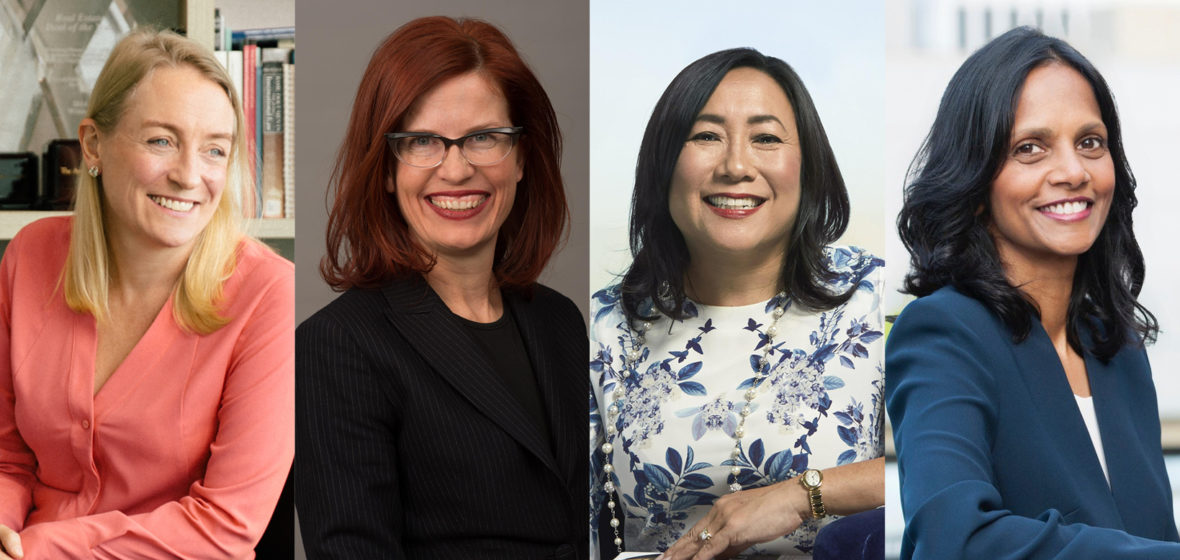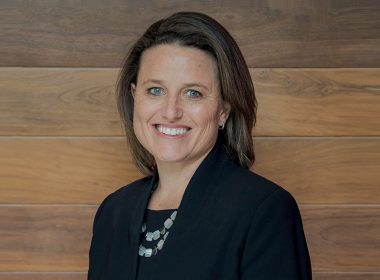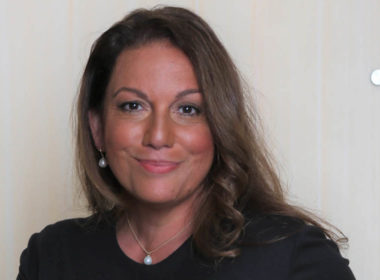Women make up more than half the legal profession in Australia, and female solicitors now outnumber their male counterparts in every state and territory. It was only a matter of time before they started dominating the global legal arena.
Georgia Dawson is speaking to me via video call from a lonely spare room at her expat home in Singapore, waving around what looks like a smartwatch on her wrist.
She returned to her adopted city three days ago after visiting family on the Central Coast of NSW. The trip threw up a series of hurdles thanks to Sydney’s COVID-19 Delta outbreak, which struck with unfortunate timing after Dawson’s mandatory two-week stint in hotel quarantine.
Now back home after curbing her regional travel plans in NSW, she’s explaining how she applied for a Singaporean “Stay-Home Notice” to allow her to quarantine at home for the required seven days rather than in an official quarantine hotel. The notice requires her to wear a tracking device – that’s the smart watch – which ensures she cannot set foot outside the door of her spare room and private ensuite. It seemed to be a great deal, she tells me, despite the added level of difficulty brought about by her children being on school holidays. As we speak, the kids and her husband are hooting at the Olympics on TV down the hall, while Dawson knuckles down on emails and work calls.
The enforced lack of space and movement is undoubtedly a bit foreign to the global roamer. She has rarely been in the same spot very long throughout her career – which reads like a map with pink ribbons criss-crossing between pins across oceans.
After growing up on the NSW Central Coast and studying law at the University of Sydney in the 1990s, she moved to Canada for a student exchange at Queen’s University in Ontario. When she returned to Sydney, she worked as a paralegal at top-tier Australian firm Herbert Smith Freehills (HSF), the same firm she had previously joined on a summer clerkship program, before jetting off again to work in a government law reform and legal education project in Vietnam.
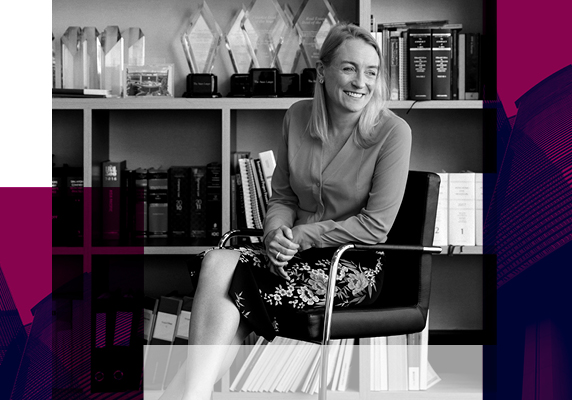
“I suppose as a woman in the profession, I’ve always been conscious of the need for us to improve. I’ve played a role within the Asia region in advancing diversity. I’ve also been a strong and vocal ally for the LGBTQI+ community and my LGBT colleagues as well. It’s something that’s close to my heart.”
“At that point, I fully expected that I would go back to Sydney and continue at Freehills. But just before I left to go to Hanoi, I got a call to say I was accepted into Cambridge to do a master’s degree in international relations, so I went to the UK after Vietnam,” she says. “From there I joined Freshfields [Freshfields Bruckhaus Deringer – a top-tier global firm] in London, so I never got back to Freehills.”
She spent eight years working in litigation and dispute resolution for Freshfields across the firm’s London and Hong Kong offices before making partner in 2012. But she stamped the biggest pin on her global career map in September last year, when she was promoted to Senior Partner of the global elite firm. International headlines have made plenty of the significance of her appointment: Dawson is the first woman to lead a “Magic Circle” (the British equivalent of Australia’s Big Six) firm.
The impact isn’t lost on Dawson, either. She acknowledges the weight of expectations on her as the first female leader of a 278-year-old law firm – and thus a face of the modern, diverse, global, legal profession.
“When I started my career, I wasn’t thinking about becoming senior partner,” she says. “However, I think I saw a path for me as a woman in law, including to become partner.
“In Sydney, Juliana Warner [a litigation partner at HSF in Sydney and current President of the Law Society of NSW] was a partner in the litigation team before I joined. She and a number of other female partners across the Sydney practice were really strong, capable, impressive women who were juggling multiple demands on their time. I think having those role models made a difference to my career and my ambition.”
Dawson remembers having confidence that she could “be what she could see” in those female leaders – a phrase that has become the modern catch-cry for diversity in all professions. It’s a feeling she wants to continue to inspire among the next generation of lawyers, particularly while female, Indigenous and culturally or LGBTQI-diverse lawyers are still rare in the corner offices and managing positions of top-tier law.
“I’ve always been passionate about diversity,” she says. “I suppose as a woman in the profession, I’ve always been conscious of the need for us to improve. I’ve played a role within the Asia region in advancing diversity. I’ve also been a strong and vocal ally for the LGBTQI+ community and my LGBT colleagues as well. It’s something that’s close to my heart.”
Inspiring success
Dawson and I are chatting in the same week that new data has been published in the Law Society of NSW’s annual National Profile of the Profession report, showing women solicitors have overtaken male solicitor numbers in every Australian state and territory for the first time. The report shows the number of female solicitors skyrocketed by 67 per cent over the past decade, in contrast to just 26 per cent growth in the number of male solicitors across Australia.
Unfortunately, female partner numbers are still low: women make up about 30 per cent of partnerships in leading Australian law firms according to the Australian Financial Review’s annual Law Partnership Survey. However, this number is improving year on year, and has jumped up six percentage points since 2016.
Dawson’s appointment to senior partner is tipping the scales in the right direction. But she’s also part of another trend: the apparently high number of Australian women lawyers making it to leadership positions on the world stage.
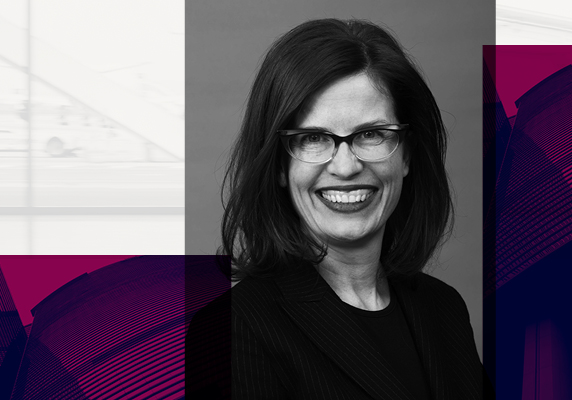
“There was this critical mass of really high profile, successful women in the office, and that was wonderful to be around,”
Just a few months after Dawson was appointed to Senior Partner, fellow Australian Rebecca Maslen-Stannage was appointed to Senior Partner and Chair at HSF. Maslen-Stannage had been a partner at HSF for two decades before being elected the first female chair of the global firm in March. Coincidentally, Dawson was one of the first people she contacted; to thank her for blazing the trail.
“I had not really been thinking of standing [in the election process], but one of the things that made me change my mind was seeing Georgia get elected at Freshfields,” Maslen-Stannage says.
“I saw that and thought, good on her, maybe I can do this, too. It has been fascinating because when I was elected, so many women then contacted me and said similar things to me [about putting themselves forward for opportunities]. The momentum really builds on itself.”
The daughter of a nuclear physicist and Rhodes Scholar, Maslen-Stannage was destined for high-stakes analytical work. She reflects that her childhood in Perth as one of eight children was slightly chaotic, and prepared her well for the frenzied, billion-dollar world of corporate mergers and acquisitions. She is widely regarded as one of Australia’s top dealmakers and rainmakers. In fact, the formerly named Freehills put her in charge of negotiating its own merger in 2012 with UK firm Herbert Smith, which created a multinational practice of more than 2,000 lawyers across 26 offices.
Maslen-Stannage began her legal career in Perth before moving to Sydney in 2001 as a junior partner at HSF. It was there that she met Juliana Warner – or, “JR”, as colleagues dubbed her then – along with a suite of prominent female leaders and partners in the firm at the time. Rebecca Davies AO, who is now a non-executive director and chair of multiple organisations, partner Phillipa Stone, the only person to have been named “Australian Deal Maker of the Year” at the Australasian Law Awards six times, and Kathleen Farrell, now Justice Kathleen Farrell of the Federal Court of Australia, were among them.
“There was this critical mass of really high profile, successful women in the office, and that was wonderful to be around,” Maslen-Stannage says.
Even so, it wasn’t easy for women climbing the legal career ladder in the early 2000s.
“Back then, we were all quite used to hearing things that now, everyone knows are completely sexist and inappropriate,” she says. “People making sexist jokes – it feels odd that it used to be common. I certainly had my fair share of that and built up a thick skin in relation to it.
“The good thing is now, hopefully, women don’t have to let it wash over them. Because it’s not happening in the same way that it used to.”
Maslen-Stannage says it has been wonderful to be part of the change in law’s leadership ranks. In a sign of the times, she says as many male lawyers have contacted her to say they are thrilled by her appointment as her female network.
“Male law partners, globally, have been really positive. I think because they like the look of a firm that has caught up with the times – of having so many different people of diverse backgrounds in leadership roles,” she says.
“Prominent chairs – chairmen – of Australian-listed companies have said to me they think it’s fabulous, both with the female aspect and they are impressed that there’s an Australian leader of a global organisation.”
What is it about Australian women lawyers?
The appointments of Dawson and Maslen-Stannage aren’t isolated incidents: women lawyers have secured leadership positions in a handful of international firms of late. Ashurst elected its first female global chair in UK corporate partner Karen Davies in May. Another UK Magic Circle firm, Linklaters, which was established in 1838, elected its first female senior partner in Aedamar Comiskey to begin the role in July.
But Australian women, in particular, are having a moment in the sun. Sue Kench has helmed King & Wood Mallesons (KWM) as Global Chief Executive since 2017. Annette Kimmitt was CEO at MinterEllison until she stepped down in March. Shemara Wikramanayake, a former lawyer from Blake Dawson Waldron (now Ashurst), has been Managing Director and CEO of Macquarie Group since 2018.
Dawson, who has always loved travel and thrives in cross-border legal arenas, believes the worldly curiosity of Australians is an asset that can’t be overlooked.
“I think Australians have a real thirst for knowledge and interest in the rest of the world,” she says. “You see it wherever you’re traveling in the world – you always come across some Australian backpackers, somewhere, trying to understand the world. If you translate that into the legal context, Australian lawyers want to work in different parts of the world – to see what they can learn and what they can experience.
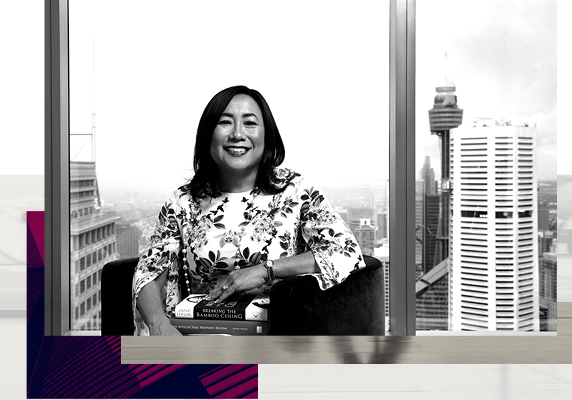
“I think that’s probably why I really wanted to be independent and be able to stand on my own two feet, because I had a grandmother who quite literally couldn’t. “My father left China for Australia and he went on to have five daughters. He said, ‘I want my daughters and grandkids to grow up with equality.’”
“But I also think a big part of it is the education and the training [in Australia],” she continues. “In fact, I was talking to the global general counsel of a very large listed corporate about six weeks ago, who was saying that they regularly hire Australians because they think they’re some of the best-trained lawyers.”
Professor Alex Steel can anecdotally attest to Dawson’s comments; he has extensive experience in developing Australian law school curriculums as the Director of Teaching Strategy at UNSW, a member of Australian Law School Standards Committee and the Council of Australian Law Deans and as an Assessor for the NSW Legal Profession Admissions Board.
He says Australian law schools tend to encourage more open-mindedness and critical thinking than their British or US counterparts, by requiring students to undertake a double degree (such as arts/law or commerce/law) when studying law as an undergraduate, and by assessing class participation and debate in students’ marks for the course.
“Because [undergraduate students] do two degrees at once, they have to think in two different ways at once. It might be that there’s something in that emphasis on double degrees in Australia, which has helped Australian graduates to be more flexible in their thinking,” he says.
“There’s also a strong tradition in Australian law schools of the discussion approach to learning. There’s an expectation that students engage in debate with their teachers and peers. I think that helps women, in particular, because it creates a safe environment to have a discussion and really dig your teeth into things.”
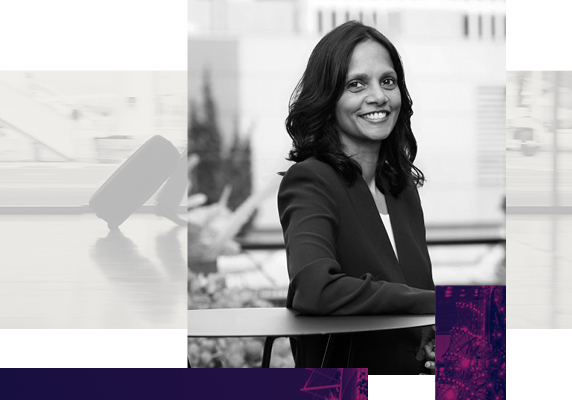
“We were less inclined to be daunted by any gender or culturally based preconceptions as barriers in our workplaces or careers. We focused on how we could deliver best outcomes for our stakeholders, working with our diverse peers and harnessing that diversity. This allowed us to get the best stimulation and satisfaction from our work and drive best results for our businesses and our own careers.”
Chinese-Australian woman Katrina Rathie was the first Asian woman appointed to partner at KWM and has been the Partner in Charge in the firm’s Sydney office until her recent retirement in August. She tells LSJ she felt the “egalitarian” culture of Australia – which, during her youth, offered free university tuition under Prime Minister Gough Whitlam – inspired women to set the sky as their limit. It was a stark contrast to the cultural traditions her parents had left behind in China, which had forced her grandmother to bind her feet and remain housebound after marriage.
“I think that’s probably why I really wanted to be independent and be able to stand on my own two feet, because I had a grandmother who quite literally couldn’t,” she says. “My father left China for Australia and he went on to have five daughters. He said, ‘I want my daughters and grandkids to grow up with equality.’”
Rathie met Macquarie CEO Wikramanayake in high school and they both attended law school together in the 1990s – feeling like the odd ones out in classes mostly filled by white Australians. Their cohort was formidable: it included former Sex Discrimination Commissioner Liz Broderick, former General Counsel of the ABC Connie Carnabuci, multi-board director Maxine Brenner, Supreme Court Justice Lucy McCallum, and NSW’s first female Attorney-General Gabrielle Upton.
Wikramanayake recalls being grouped with Rathie in school and university classes as her maiden name was Yee and they were both at the tail end of the alphabet. Wikramanayake says being among “like minded peers and mentors … partnered to help us all deliver to our best”.
“We were less inclined to be daunted by any gender or culturally based preconceptions as barriers in our workplaces or careers,” Wikramanayake tells LSJ. “We focused on how we could deliver best outcomes for our stakeholders, working with our diverse peers and harnessing that diversity. This allowed us to get the best stimulation and satisfaction from our work and drive best results for our businesses and our own careers.”
Throughout her 26 years in the KWM partnership, Rathie made it her mission to empower young women and culturally diverse lawyers (“a man is not a plan!” she reminds me). She helped to introduce gender diversity targets, led diversity and inclusion programs in the firm, and pioneered a “blind recruitment” process, which involves blocking out applicants’ names and schools on resumes, so their cultural background and gender is unknown. The firm is ahead of most top-tiers in Australia in reaching its goal of 30 per cent female partners in 2018, and setting a new target of 40 per cent female partnership participation by 2025. Even as she retires from legal work, Rathie has agreed to become patron of the NSW Branch of the Asian Australian Lawyers Association in 2021.
“I’m a total believer in being what you can see,” she says. “I think it sends a message to generations of women and men about what they can be.
“It’s that little kid who sees the cardboard cut-out of the Paralympian at Woolworths and says, ‘She did that, I can do that too!’ Or, ‘She’s a person who’s family are immigrants who came here on a boat,
like me!’ I think that’s really important.”

